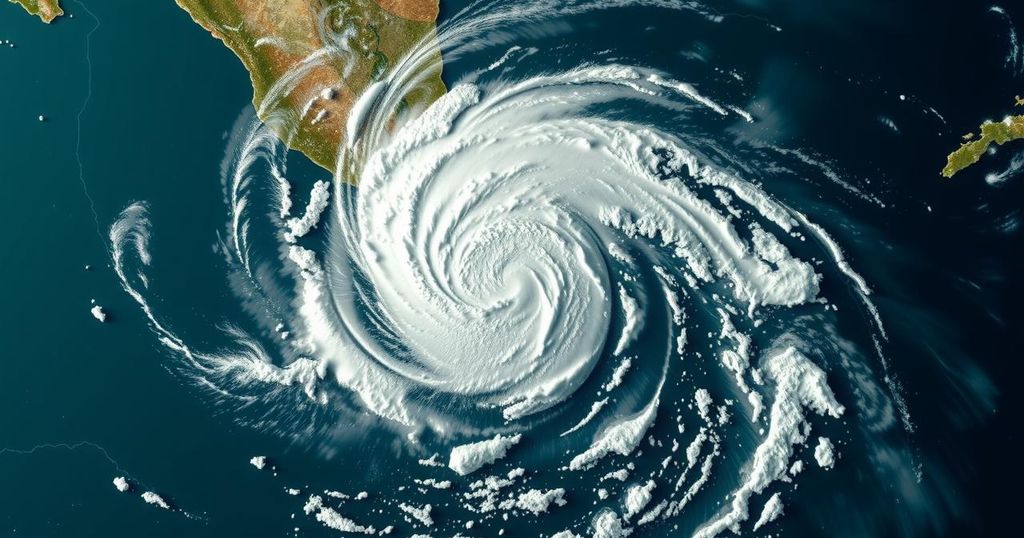Hurricane Rafael, now a downgraded Category 2 storm, has caused significant damage in Cuba, including power outages and home collapses. The storm, which previously hit Jamaica and the Cayman Islands, is expected to weaken in the Gulf of Mexico. Recovery efforts are underway, but many homes remain without electricity, aggravating the island’s ongoing energy crisis.
Hurricane Rafael has transitioned into the Gulf of Mexico following its landfall in Cuba as a formidable Category 3 hurricane. Upon striking Cuba, the storm caused extensive damage, leading to power outages across the nation, resulting in the collapse of hundreds of homes. By Friday morning, Rafael was downgraded to a Category 2 hurricane, located approximately 230 miles north-northeast of Progreso, Mexico, with sustained winds of 110 mph and moving northwest at a speed of 9 mph. In the wake of the storm, the Cuban government reported damage affecting 461 homes and the evacuation of around 283,000 individuals. Flooded streets exhibited debris, including downed trees and power lines. Although power was restored to approximately 143,000 homes in Havana, many residents remained without electricity. Observers have cautioned citizens regarding hazardous surf and rip current conditions resulting from the hurricane’s swells. Rafael’s trajectory has involved prior impacts on Jamaica and the Cayman Islands, where it caused significant disruption, including power outages and mudslides. The storm’s passage through Cuba adds to the country’s recent struggles with energy crises and blackouts. This evolving weather pattern is anticipated to weaken and drift through the Gulf, away from immediate land threats, but vigilance remains necessary as the storm dissipates.
Hurricane Rafael serves as a stark reminder of the vulnerability of Caribbean nations to natural disasters and extreme weather events. The storm’s trajectory through Cuba, Jamaica, and the Cayman Islands reflects a concerning trend of increased frequency and intensity of severe weather attributed to climate patterns. Countries in the Caribbean often face compounded challenges during hurricane seasons, including infrastructure vulnerabilities and existing energy crises. Understanding the historical context and nature of these hurricanes is crucial for developing more robust preparedness and response strategies.
In summary, Hurricane Rafael’s impact has been profound, particularly in Cuba, where it has exacerbated existing energy challenges and resulted in extensive physical damage. While the immediate threat to land may be lessening as the storm weakens in the Gulf of Mexico, the ramifications of its passage will linger in affected areas. Continuous monitoring and support will be necessary for recovery efforts as communities begin the arduous task of rebuilding.
Original Source: apnews.com







